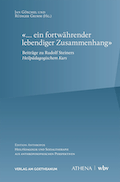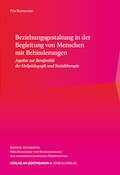Edition Anthropos
Jan Göschel; Rüdiger Grimm (Hg.)
The book «… ein fortwährender lebendiger Zusammenhang» is the joint work of a group of authors who, against the background of the time when the course was created and in reflection on the present situation, explore the future perspectives that can be gained from Steiner’s explanations.
Johannes Kronenberg; Ioana Viscrianu; Ruth Fiona Roever
Pim Blomaard
This book adopts the perspective of the professional carer who wants to shape their relationship with people with intellectual disabilities on the basis of equality and recognition. The dialogical principle is based on thinkers such as Buber, Steiner, Rogers, Mac Intyre and Haeberlin and is ethically evaluated with practitioners such as Gröschke, Theunissen, Köhn and Flosdorf. The author develops a virtue ethics that establishes disability care as a professional practice and presents exercises that caregivers can use to prove themselves in difficult situations. This is how a professional ethic is created that combines the image of humanity with the professional image. At the same time, the independent position of the person being cared for is taken into account, in that the carer contributes as a person and develops through the interaction. The asymmetrical relationship can thus be transformed into an equal one.
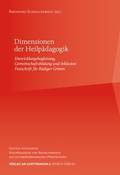
Bernhard Schmalenbach (Hg)
This volume brings together a wealth of contributions from a range of topics and fields of work in supportive education: practical suggestions, explorations of the history of supportive education, community building and inclusion – in a dialogue between theory and practice and from a range of perspectives, including those of anthroposophical supportive education and social therapy. In this commemorative publication dedicated to Rüdiger Grimm, 23 authors provide reports on their experiences and food for thought.

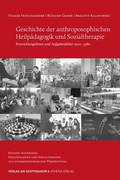
Volker Frielingsdorf; Rüdiger Grimm; Brigitte Kaldenberg
The history of supportive education and social therapy is not just a way of developing a holistic method of supporting and caring for children, young people and adults from the spiritual-scientific view of humanity in anthroposophy. It is also part of the history of the profession in its difficult path through the 20th century and beyond, an initiative movement in which the development of anthroposophy is also expressed in its eventful history.
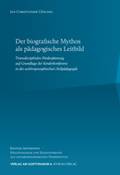
Jan Christopher Göschel
In response to the instrumental rationality of a positivist disability education, the author develops a transdisciplinary approach to supportive education that uses the guiding principle of individual biography as an integral principle of the child’s life. This “biographical myth” is used as a model for pedagogical and therapeutic action that is committed to the integrity of the developing biography. By incorporating elements of phenomenology, hermeneutics, narrative and image theory, as well as contemplative humanities, the author creates an epistemological and methodological basis, along with a guideline for the practical design of transdisciplinary funding planning processes in the context of supportive and special needs education.
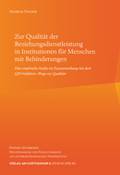
Andreas Fischer

